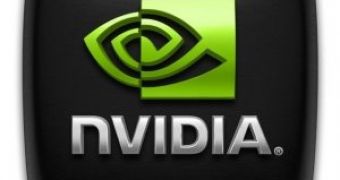Normally, when two companies aren't exactly on good terms, one would expect both parties to not miss any opportunity, no matter how small, to gloat over the other's so-called failures. Verily, the relationship between Intel and NVIDIA isn't exactly the highest level of friendship, with both of them currently involved in licensing litigations. Still, in spite of what general expectations would entail in a situation where one of two “opponents” hits a stump, NVIDIA didn't gloat over the Larrabee failure, nor did it ridicule the project.
“The fact that a company with Intel's technical prowess and financial resources has struggled so hard to succeed with parallel computing shows just how exceptionally difficult a challenge this is,” Igor Stanek, NVIDIA product PR manager, told Fudzilla when asked to express his thoughts on the recent developments at Intel.
Bystanders would most likely see this attitude as surprising, especially considering the ongoing tensions between the chip maker and the GPU manufacturer. Heated comments arose in the past, with NVIDIA's CEO, Jen-Hsun Huang, even saying that Intel was scared and that NVIDIA would “kick their ass in court.” Of course, this time around it was not the CEO who made the comment, so end-users might still get their dose of controversial statements.
Nevertheless, Stanek's comment seems to suggest that the GPU manufacturer actually saw at least some possibility of Intel creating a graphics solution capable of rivaling its own. As he said, the challenge was exceptionally difficult, but he did not say impossible, unlike AMD, whose representative said that the x86 “design philosophy” wasn't suited for GPU computing.
Of course, both parties seem to forget the fact that Intel did not exactly scrap the Larrabee project. All Intel said was that its “first Larrabee product will not be launched as a standalone discrete graphics product.” This implies that Intel might still eventually release it, just not according to initial plans. The NVIDIA CEO has yet to voice his own view on the matter. Further developments will shed more light on the relationships between the companies.

 14 DAY TRIAL //
14 DAY TRIAL //